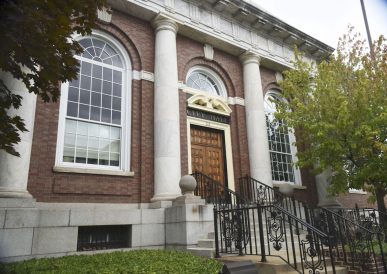Washington holding line on 2026 taxes

It appears that the city of Washington will not have a tax increase in 2026.
Councilman Ken Westcott, who chairs the finance department, said the city will have a $15.3 million budget for 2026 that will keep millage at 5.53 mills for buildings. The rate for land is 38.71 mills. He said the budget is about $300,000 higher than the 2025 spending plan.
“We’re still working on a carryover,” Westcott explained. “We asked all departments to hold their costs this year. They did a great job on that. … That kept those costs down and helped us maintain a balanced budget for the year.”
A first reading of the city’s 2026 spending plan is scheduled for Thursday’s council meeting. The budget will be adopted in December.
A key move toward getting a balanced budget with no tax increase was the refinancing of the Minimum Municipal Obligations debt, which finances pensions for police and firefighters.
“We refinanced that this year and it brought our pension contribution from $1.4 million down to $870,000,” Westcott said. “That helped us out.”
Another step to hold the line will be the addition of personnel to the fire department.
“Last year, we had some firefighters with military time who were out so we had to pay some overtime,” Westcott said. “In the long run, we feel that we can hire a couple of additional firefighters that can cover those costs and bring the overtime costs down.”
Solid waste collection fees will increase from $300 to $320 annually.
“The fees went up from the garbage company, so obviously we have to offset the cost,” Westcott said. “It’s a fee, not a tax, so we have to keep up with the cost.”
The 2025 budget included the city’s first tax increase in five years, when millage was raised by 1.5 mills. That resulted in the average homeowner paying an additional $180 in taxes.
Also at Thursday’s meeting, contracts are expected to be awarded for the Downtown Streetscape Project and the Outlet Replacement Project.
Plans are underway to remove 75 to 80 faulty lamppost receptacles and replace them with weather-related Ground Fault Circuit Interruptors and brighter LED lights.

